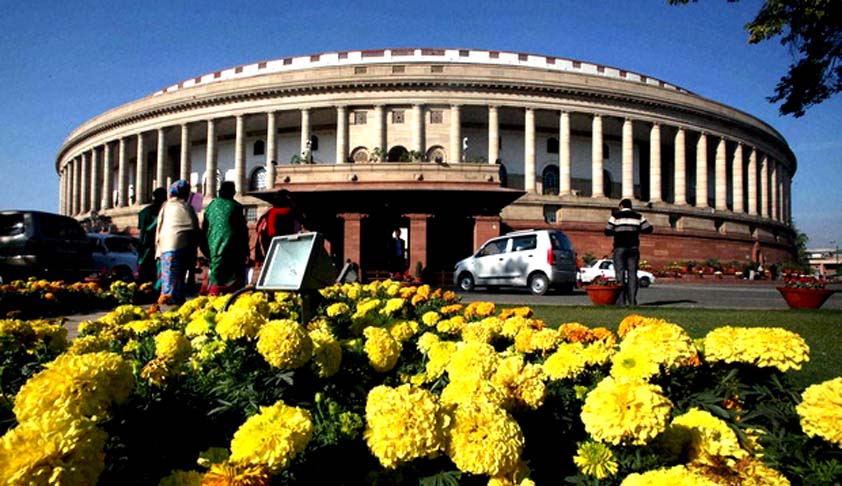Repeal Of Redundant Laws: A Step In Right Direction
Dr. Neeti Shikha
23 Jan 2018 7:07 PM IST

During the Winter Session of Parliament the Lok Sabha passed two Bills to repeal 245 archaic laws. Some of these laws include the Calcutta Pilots Act of 1859 and the 1911 Prevention of Seditious Meeting Act. Law Minister Shri Ravi Shankar Prasad noted that many old and irrelevant pre-Independence laws were the "unfortunate part of the colonial legacy" and repealing them was a progressive move that reflects the "pro-reform" approach of the government.
The act of repealing redundant laws is as important as making new laws. If the law books are old, irrelevant and behind time, it confuses those who are governed by it. As law grants no excuse to those who are in ignorance of it, it is imperative that the law books are updated to maintain its relevance.
As national coordinator of Project Repeal of Laws, an initiative started by the Centre for Civil Society in the year 2014, I have spent months studying laws from Karnataka, Uttar Pradesh, Telangana, Maharashtra and Chattisgarh. We worked closely with law students who came from these states and were able to identify over 100 laws that make a fit case of repeal. These laws touched areas of administration, revenue, tax, individual rights, animal rights etc. While most of these laws date back to the pre-Independence era, surprisingly some laws were also as recent as 2011.
The study found some interesting cases that have been discussed below:
The Chhattisgarh Bhiksha Vritti Nivaran Adhiniyam, 1973 that aims to consolidate law relating to beggars, sees beggars as criminals. The Act gives arbitrary authority to the police to detain anyone on the suspicion that the individual is a beggar. The Delhi High Court in Ram Lakhan vs. State has held that the detention of persons begging because of poverty is dehumanizing to them, and is a disgrace and a failure of the State. Despite such observation, the Act remains a part of the legislative framework even though the Central Government has brought a draft Bill “Persons in Destitution (Protection Care and Intervention) Model Bill, 2016”, to be implemented by all state governments that will give rights to destitute to demand help from the states.
The Chhattisgarh Bhiksha Vritti Nivaran Adhiniyam is not the only one of its kind. There are other laws namely The Eunuchs Act of 1919 that criminalises eunuchs in Telangana, the Karnataka Livestock Improvement Act, 1961, allows the licensing officers to order castration of a “non-licensed” bull, and the Naik Girls Protection Act passed by the Colonial Government in keeping with its Victorian principles aims to curb immoral trades such as prostitution and grants the District Magistrate the authority to investigate any member of the Naik caste, order restriction of movement, send Naik girls to special settlement and detain them there.
The project is ongoing and aims to carry a detailed study of all the states in India by the year 2020. The Centre for Civil Society has been advocating for institutionalisation of this process by calling for declaring 26th November as National Repealing Law Day, where legislature, policy-makers as well as other stakeholders can look back at their exercise of cleaning of statute books and finally declare the laws that call for annulment, amendment or repeal every year on this day. As Hemant Batra, the founding partner of Kaden Boriss and closely associated with the project as expert, notes that in India, laws don't come with expiry date and do not die their natural death, despite being out of use for years. Thus, a day such as the National Repeal Law Day is very much warranted in country like India, where we are not only carrying baggage of redundancy in legal system but need to ensure that our laws are in tandem with evolving jurisprudence and societal need. It is the need of hour to develop a practice of judicial vetting and audit. Sometimes we come across serious flaws with the drafting of laws in India and it seems that whenever there is an issue with interpretation, the legislature adopts the quick fix approach of introducing an amendment or sending clarification notices. An amendment of law is a good practice but drafting of robust laws that imbibe the scope of purposive interpretation to meet the changing needs of time should be the first approach. For this, policies cannot be made in a top- down approach, rather should be made after due pre-legislative consultation involving all the stakeholders and experts, not just from India but also from the USA and the UK, who have vast experience and deep understanding of global legal order and have hands-on experience on legislative drafting. One must not forget that rule of law goes to the heart of every economy and if we wish to make India an attractive destination for commerce and investment, we need to draft a robust set of laws, made in prospect and not in retrospect. Equally important is to do away with old and obsolete laws. The way we need a clean house to attract positive energy, we need to have clean statute books to attract growth and development.
Dr. Neeti Shikha is an Associate Professor with Symbiosis Law School, Noida. She is the national coordinator for project Repeal of Laws, an initiative started by the Centre for Civil Society. She also serves as a leader and expert on the board of Goeman Bindt HTO, an International Policy and legal advisory think tank. She expresses gratitude to Karan Gulati who was closely associated with the project.
[The opinions expressed in this article are the personal opinions of the author. The facts and opinions appearing in the article do not reflect the views of LiveLaw and LiveLaw does not assume any responsibility or liability for the same]


